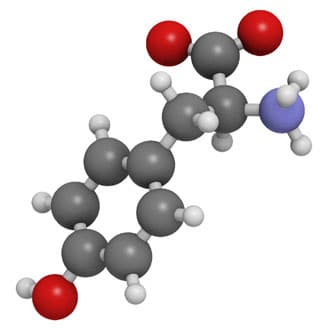Tyrosine is an amino acid – a group of compounds that serve as building blocks for proteins. Previous research conducted by Alfred L. Fisher, from the University of Texas (Texas, USA), and colleagues explored the effect of tyrosine on insulin signaling in C. elegans (roundworms). The team considered data suggesting that tyrosine is elevated in the blood of people who are obese – and among obese people, those with elevated tyrosine are at increased risk for developing diabetes. In future small human clinical trials, the researchers aim to elevate tyrosine levels in study subjects and observe whether it affects the ability of the body to respond to insulin. The study authors submit that: “Our findings point to a novel role for tyrosine as a developmental regulator and modulator of longevity, and support a model where elevated tyrosine levels play a causal role in the development of diabetes and cancer in people.”
Protein Building Block May Prompt Diabetes
Annabel A. Ferguson, Sudipa Roy, Kaitlyn N. Kormanik, Yongsoon Kim, Kathleen J. Dumas, Vladimir B. Ritov, Dietrich Matern, Patrick J. Hu, Alfred L. Fisher. “TATN-1 Mutations Reveal a Novel Role for Tyrosine as a Metabolic Signal That Influences Developmental Decisions and Longevity in Caenorhabditis elegans.” PLOS Genetics, 19 Dec 2013.
RELATED ARTICLES




